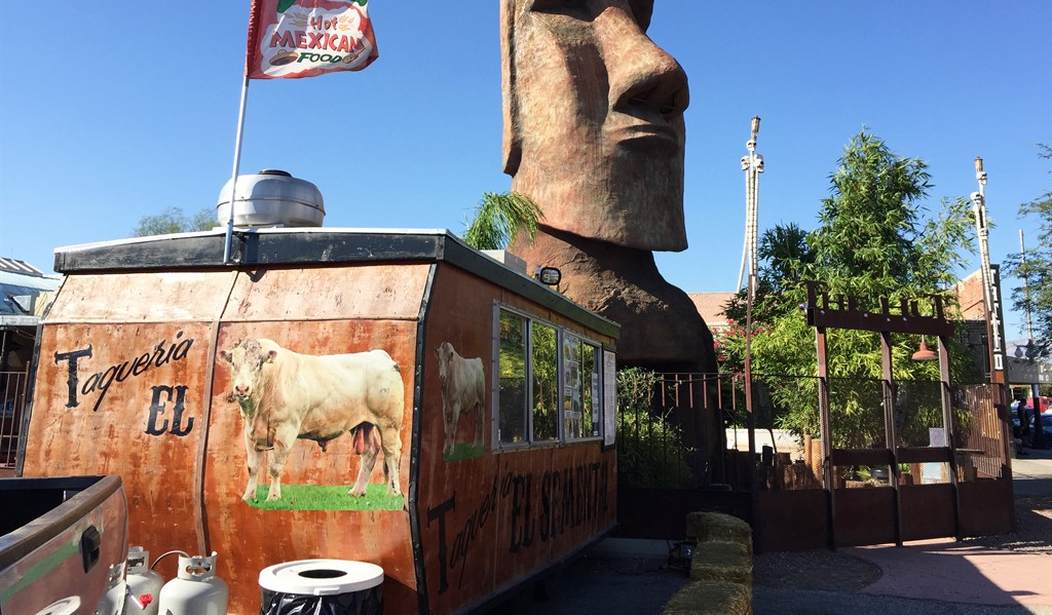Would You Like Some Racism With Your Mai Tai?
Welcome dear readers to the fourteen billionth “Not the Onion” moment from The New York Times that’s occurred just this year.
What a tedious, wearisome thing it must be to have to live the modern American progressive lifestyle. They truly believe that everything is awful, despite the fact that by almost every objective measure Americans are living pretty good lives even here in 2020.
One of the biggest drags on their collective psyche is the fact that they see racism EVERYWHERE. I will concede that modern American society still has some problems with racism if you look at the things that are actually, you know, racist. There is still enough of that floating around out there that nobody should have to contort themselves to see racism in places where people would normally never think to look.
Like tiki bars.
It is an unquestionably difficult time for the hospitality industry. Every day, another restaurant shutters, one more bar pulls its steel gate down for good. Since its invention, one kind of watering hole has seen America through its most grueling times: the tiki bar.
Decorated with bamboo and beach-y lights, with bartenders in Aloha shirts serving up mai tais, tiki bars were a booming part of America’s hospitality industry. “Put down your phone and put on this lei,” say the tiki bars. “Here’s something delicious in a silly mug.” They offer an intoxicating escape from the weight of the world.
But the roots of tiki are far from the Pacific Islands. A Maori word for the carved image of a god or ancestor, tiki became synonymous in the United States and elsewhere for gimmicky souvenirs and décor. Now a new generation of beverage-industry professionals are shining a light on the genre’s history of racial inequity and cultural appropriation, which has long been ignored because it clashes with the carefree aesthetic. Let’s peel back the pineapple leaves to examine the choices that created a marketing mainstay.
See? The writers even acknowledge what lighthearted fun tiki bars are, which means that they had to put in some extra effort to find something problematic.
Oh yeah, this was such an important topic that the Times had two writers involved. Their names are Sammi Katz and Olivia McGiff, so I’m going to go out on a limb and say that the problem isn’t that they are Pacific Islanders who are personally aggrieved.
The problem Katz and McGiff have is that the two California entrepreneurs who made tiki bars wildly popular were white guys. A lot of predictable social justice warrior filler follows. “Cultural appropriation” and “imperialism” get mentioned. Apparently “tiki” can be a trigger word too. That’s probably something that no one would know — or even believe — had this article not been written. The feature image for this post is from a bar that’s about a mile from me (I have no idea why we had it in our AP Photo archives) and I never even think of the word “tiki” when I go by there.
The article is one of those tortured modern liberal things where you can tell that they were enjoying something too much so they had to find a way to feel guilty about it:
At its heart, tiki is about fun, creative drinks in a transportive environment. A new wave of industry professionals is reimagining these delicious contributions to cocktail culture, looking to shed the appropriation and racism that have accompanied tiki since its inception. We spoke to a few of them about the ways they’re working to shake up the biz for the better.
Read that again. The paragraph is nonsensical. It’s either really about fun or it’s really about racism. Pick one.
Food and drink don’t really need to be tied to history. I can enjoy some strudel and not be a Nazi sympathizer. I’m not saying that there may be some historical truths in the Times article, I’m saying that the popularity of mai tais isn’t responsible for problems in the region with which they’re associated.
I’m also saying I don’t even like mai tais.
___
Kruiser on Parler
Kruiser on MeWe
Kruiser on Twitter
Kruiser on Facebook
PJ Media Senior Columnist and Associate Editor Stephen Kruiser is the author of “Don’t Let the Hippies Shower” and “Straight Outta Feelings: Political Zen in the Age of Outrage,” both of which address serious subjects in a humorous way. Monday through Friday he edits PJ Media’s “Morning Briefing.” His columns appear twice a week.










Join the conversation as a VIP Member